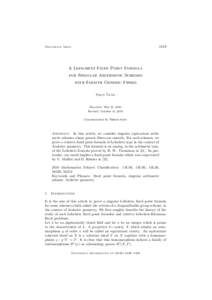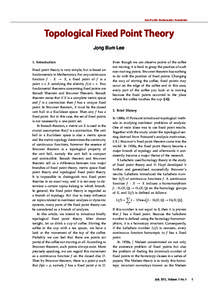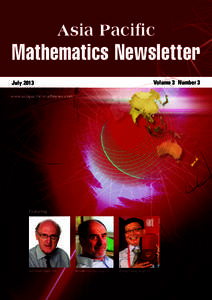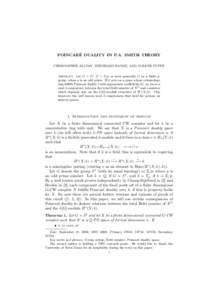<--- Back to Details
| First Page | Document Content | |
|---|---|---|
 Date: 2010-12-30 05:23:37Mathematics Topology Mathematical analysis Differential geometry Connection Operator theory Equivariant sheaf ChernWeil homomorphism Cohomology Lefschetz fixed-point theorem Vector bundle Contraction |
Add to Reading List |
 | 1049 Documenta Math. A Lefschetz Fixed Point Formula for Singular Arithmetic SchemesDocID: 1rcrZ - View Document |
 | Asia Pacific Mathematics Newsletter 1 Topological PointTheory TheoryDocID: 18Zv1 - View Document |
 | ´ DUALITY IN P.A. SMITH THEORY POINCARE CHRISTOPHER ALLDAY, BERNHARD HANKE, AND VOLKER PUPPE Abstract. Let G = S 1 , G = Z/p or more generally G be a finite pgroup, where p is an odd prime. If G acts on a space whose coDocID: Tlq6 - View Document |
 | Professor Ian Sloan, Faculty of Science, UNSWDocID: RKTP - View Document |
 | ´ DUALITY IN P.A. SMITH THEORY POINCARE CHRISTOPHER ALLDAY, BERNHARD HANKE, AND VOLKER PUPPE Abstract. Let G = S 1 , G = Z/p or more generally G be a finite pgroup, where p is an odd prime. If G acts on a space whose coDocID: PM6U - View Document |
 1049 Documenta Math. A Lefschetz Fixed Point Formula for Singular Arithmetic Schemes
1049 Documenta Math. A Lefschetz Fixed Point Formula for Singular Arithmetic Schemes